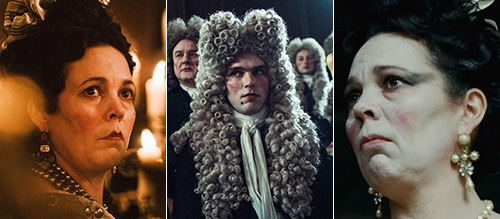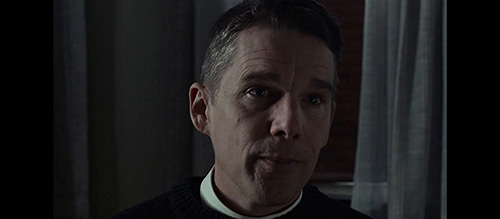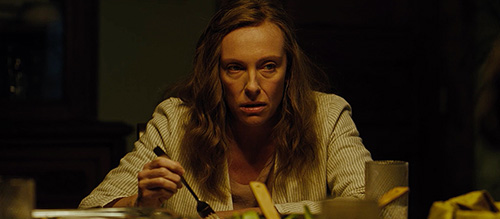The Five Most Idiotic Oscar Snubs 2019
It seems like every single year the Academy of Motion Picture Arts & Sciences gets their Oscar nominations wrong. Take to any form of social media, ask anyone in the street, read any online or physical publication, and it seems that just about everybody will disagree with at least something. This year, a lot of the controversy regarding the show has been reserved for behind the scenes issues regarding the choice (and later dismissal) of a host, and most recently the announcement that four vitally important film mediums would be pushed to the commercial breaks of the ABC broadcast to keep the ceremony short.
Thankfully for the purists amongst us, the decision to bump acceptances to the commercial breaks has been reversed (albeit very last minute as far as these things go) and we’ll be seeing all 24 awards handed out and accepted live on air.
All of this attention has given the Academy somewhat of a breather from typical awards season feedback – that being the complete destruction of their collective opinion by the wider film community – but it doesn’t mean that they’re entirely exempt from criticism. So, in the spirit of true critique and more accurately an attempt to bring attention towards some artists at the very top of their game, we’ve collated a list of the five biggest and most idiotic snubs of the 2019 Oscars nominees list.
Here they are in no particular order…
1. Lynne Ramsay – Directing
You Were Never Really Here star Joaquin Phoenix with director Lynne Ramsay. Image: /Film
We are in 2019 and there have still only ever been 5 women nominated for a Best Director Oscar in the history of the awards ceremony.
The latest nominee Greta Gerwig (2018) blew people away to earn her nomination through her work on Lady Bird, but her nomination came 8 years after the previous time a female – Kathryn Bigelow – was nominated, and won, the award for The Hurt Locker.
In 2018 there was a plethora of female filmmakers making special work – Debra Granik, Marielle Heller and Nadine Labaki are just a few examples – but the absence of Scottish auteur Lynne Ramsay from the Best Director nominees list at the 2019 Oscars seems to be by far the biggest misstep the Academy have taken in the category for a fair few years.
Her absence from the final list of 5 – one that features some hugely impressive feats of direction from incredible filmmakers in their own right – is one that stands out despite the quality of the rest of the field. This was a Cannes Film Festival Palme d’Or (Best Film), Best Actor and Best Screenplay award nominee upon its unveiling at the ceremony a number of years ago, and despite being released early in the year – a time period considered to be too early in the calendar to gain real awards season traction despite recent nominees Get Out and Black Panther being released as early as March in 2017 and 2018 respectively – should have been more present in the Oscars list than it was.
Zero nominations for a film as blow away fantastic, auteuristic and artistic as You Were Never Really Here is indicative of larger issues surrounding the Oscars voting process more than the quality of Ramsay’s work and is evidence, if ever we needed any more of it, that money (through multi-million dollar Oscar campaigns) often wins nominations more than quality does.
The fact that Ramsay wasn’t even included in the awards season buzz for the award when the likes of (the frighteningly average) Bradley Cooper and the detestable Bryan Singer were is utterly astounding. Regardless of her gender, the work she produced for You Were Never Really Here is some of the very best in cinema for 2018 and should have made her a front-runner for Best Director at the Oscars and at the very least a worthy nominee. This is one huge misstep from an Academy which seems only to act with their votes when the popular consensus is shouting at its most loud.
2. Justin Hurwitz – Original Score
Hurwitz actually won the award for Original Score for his work on First Man at the 2019 Golden Globes.
For all of the criticisms levelled at Damien Chazelle’s Neil Armstrong centred First Man on the Moon picture First Man, and the divisive reception that followed unfounded pre-release controversy surrounding the patriotism of the picture, the score of Chazelle’s Whiplash and La La Land collaborator was almost universally praised as an outstanding achievement in the medium; one so fantastic that it raised the entire movie to a level that was otherwise unattainable.
Hurwitz’s score arced back to the classic sci fi score of 2001: A Space Odyssey while mixing elements from the compositions of modern ballet dances to create something so beautiful and mesmeric that it became fundamental to the journey of the film. More than a supporting act, Hurwitz’s score was a central draw.
The field for the Original Score category at the Oscars in 2019 is very impressive, celebrating the work from BlackKklansman, Black Panther, If Beale Street Could Talk, Isle of Dogs and Mary Poppins Returns respectively, and not one of those nominees could easily be plucked and replaced by Hurwitz, but given his position as the early favourite for the award and the way that First Man wasn’t entirely dismissed across the final list of nominees (it received nominations for Visual Effects, Production Design and, most importantly, Sound Editing and Sound Design), it’s not as if the Academy simply forgot about First Man in general or that the studio failed to fund an Oscars campaign. Furthermore, Hurwitz actually won the 2019 Golden Globe for Best Original Score, an award win that usually signifies the likelihood of at least an Oscars nomination, but for some reason it just wasn’t to be.
If any solace is to be taken from Hurwitz’s dismissal from the Original Score category, it’s that he’s in phenomenal company on the sidelines, his score joining work from the likes of the legendary Hans Zimmer and the highly respected and recently deceased Johann Johannsson as an outsider to the list of 2019 Oscars nominees. Regardless, there seems to be a real sense of the category being done a disservice for Hurwitz not being included, especially considering how absolutely necessary his inclusion did, at one stage, seem.
3. The Favourite – Hair & Make-Up
It has astonished many in the game, whether “in the know” or not, that Yorgos Lanthimos’ much celebrated and well nominated front-runner The Favourite hasn’t received a nomination for Hair & Make-Up in 2019. The reason is pretty obvious… just look at it:
The actual nominees in this category are Ali Abassi’s Swedish-language offering Border, a choice so perfect that even its under-representation across the award categories (including in the Foreign Language Film category) can hold it back, as well as Mary Queen of Scots and Vice.
It is far from the purpose of this piece to choose any particular nominee to be shafted in favour of the recommended selection, and in the case of Hair & Make-Up that is only further dismissed when discovering that it is one of very few awards to have less than five nominees (in this case three). In fact, it’s the only one!
Just add a few extra films and give The Favourite the props it clearly [see above] deserves.
How does The Favourite even work without the hair & make-up? There’s even entire scenes dedicated to pointing out how important it is to the overall presentation of the film – does anyone remember “you look like a Panda” for example?
It seems odd that an awards show usually so enamoured with period dramas, especially in such categories, could overlook the work on offer in this wonderfully constructed piece. Ridiculous.
4. Ethan Hawke – Actor In A Leading Role
How Ethan Hawke took what is, on the surface at least, an unrelateable and at times absurd concept and grounded it in a place of empathy and relatability is testament to the outstanding acting work he offered in First Reformed, an agreeably under-represented film this awards season.
Ill-informed comments from the filmmaker behind the project, Paul Schrader, made on the cusp of awards season seemed to have dampened any appetite for one of Summer 2018’s quiet art-house successes, but having his comments in turn keep Ethan Hawke away from the discussions surrounding Leading Actor seems to have become a massive disservice not only for Hawke and the movie, but most importantly for the Oscars themselves.
The Best Actor category in 2019 is far from the closely contested, star-studded line-ups we’ve become accustomed to in recent years – front-runner Christian Bale (Vice) is joined by Bradley Cooper (A Star Is Born), Willem Dafoe (At Enternity’s Gate), Rami Malek (Bohemian Rhapsody) and Viggo Mortensen (Green Book) – and it is perhaps a safe assumption that the Oscars have leaned more heavily into the likes of A Star Is Born and Bohemian Rhapsody in particular to draw more eyes to the product (not that either man is undeserving of their nomination).
Hawke’s raw power and subversive anger in First Reformed is the anchor of an exceptional piece of cinema and arguably the performance of his highly decorated (and indeed Oscar nominated) career. How the Academy missed this one is somewhat astounding and a bit of a misstep from a group that is usually clued into nominating just about the best male actors of the lot (usually).
5. Toni Collette – Actress In A Leading Role
Just because Get Out was a Best Picture nominee and Original Screenplay Oscar winner in 2018 doesn’t mean that the decades of keeping horror outside of mainstream artistic recognition has been fixed Academy.
Toni Collette’s performance in the haunting and rich summer horror Hereditary was one of the most obviously sensational of any performance put to the big screen in the 2018 calendar year, her major moments – such as a confrontation at the dinner table with her son – being some the most awards worthy “actor’s acting” around. You could even put her up there with (actual nominee) Glenn Close in the “proper acting” stakes.
Collette has historically been looked beyond as an acting nominee by the Oscars – this despite a rich history of well received independent hits and a filmography filled with diverse and enticing roles – and it seems like this, as well as the absurdly large horror hurdle, was just too much even for such a typically Oscar-worthy performance to jump over. But what a shame!
Like Hawke, Collette took what could have been a hard to invest in concept and grounded it, making you believe in every small twist and tantalising development from the script and truly making us question her character from motivations to her grasp on reality. She was simply phenomenal and her absence here is felt all the more for it.
Actual nominees Yalitza Aparicio (Roma), Glenn Close (The Wife), Olivia Colman (The Favourite), Lady Gaga (A Star Is Born) and Melissa McCarthy (Can You Ever Forgive Me?) provide a strong and hotly contested field of nominees that seems to bring more excitement than this year’s male category, so perhaps Collette’s dismissal from the shortlist is not as idiotic as some of the other choices in this list, but it does make for a rather strong case against the Academy’s current bias against horror films and acts as a reminder that truly great work does exist beyond the confines of awards winners (interestingly, Collette was not nominated at nearly every single major awards show of this awards season, and what a crying shame that is).
What do you think of this year’s list of nominees? Which films/artists do you feel should have been nominated but were completely dismissed? Feel free to let us know in the comments!
[DISPLAY_ULTIMATE_SOCIAL_ICONS]






